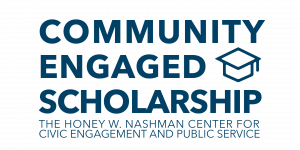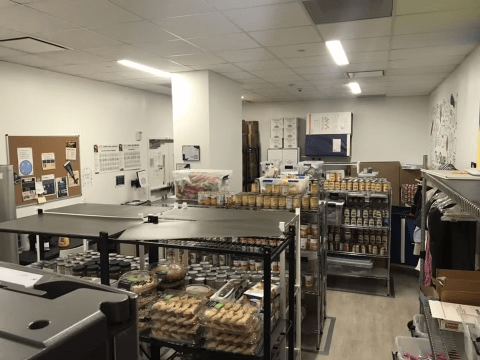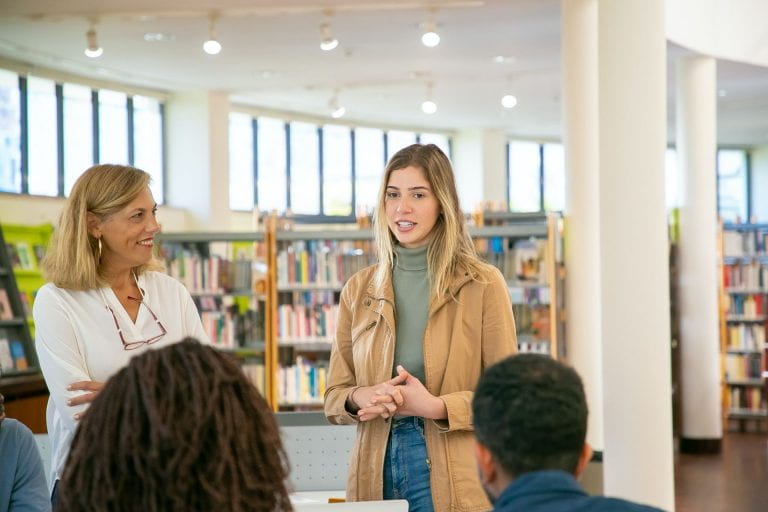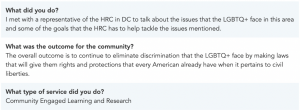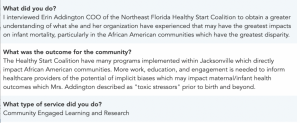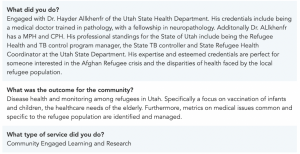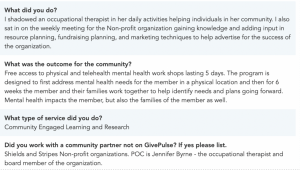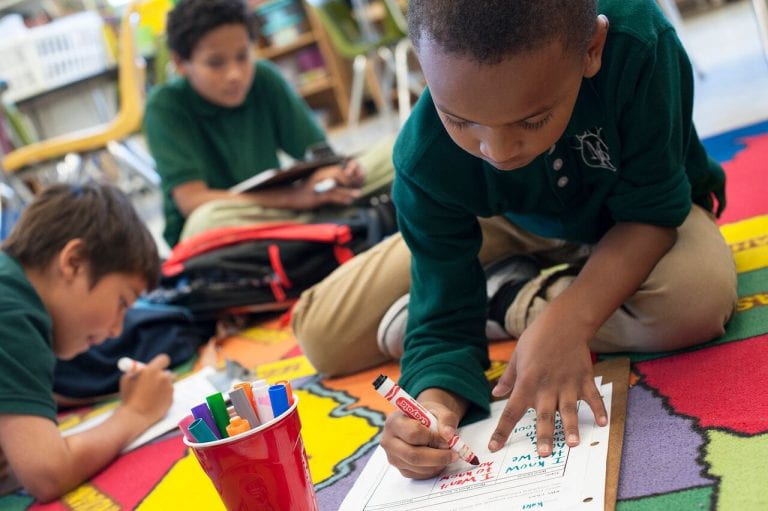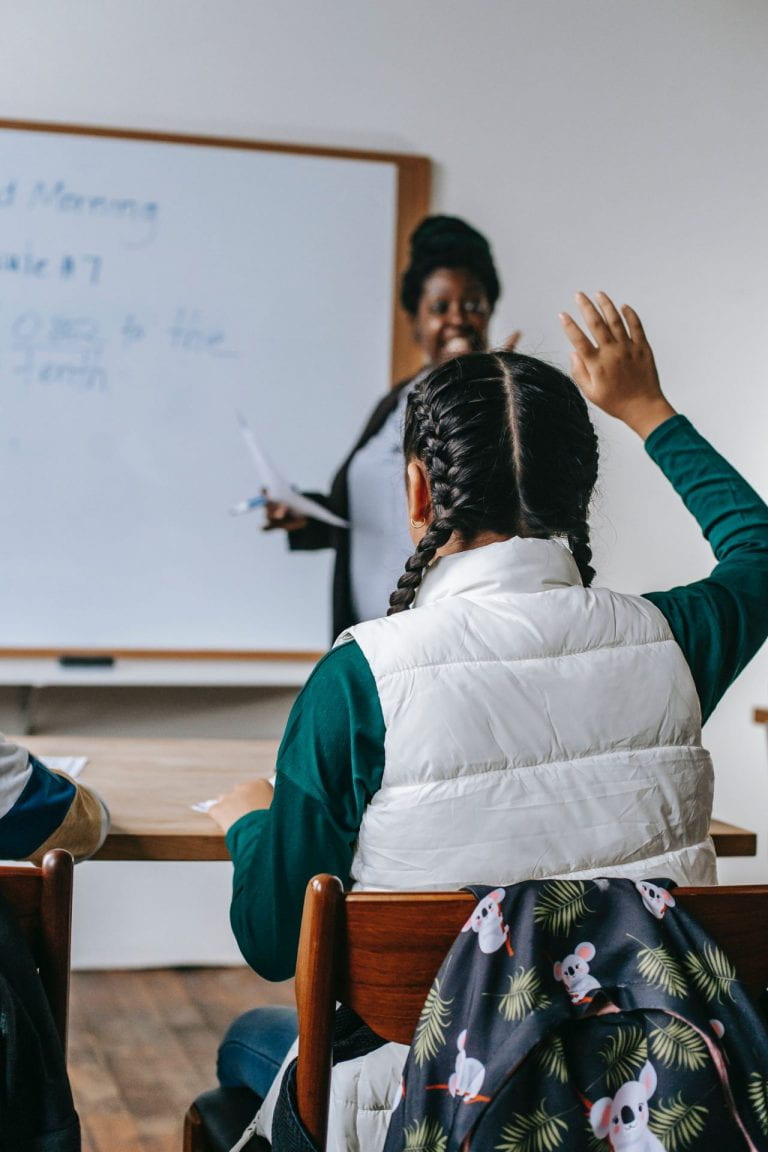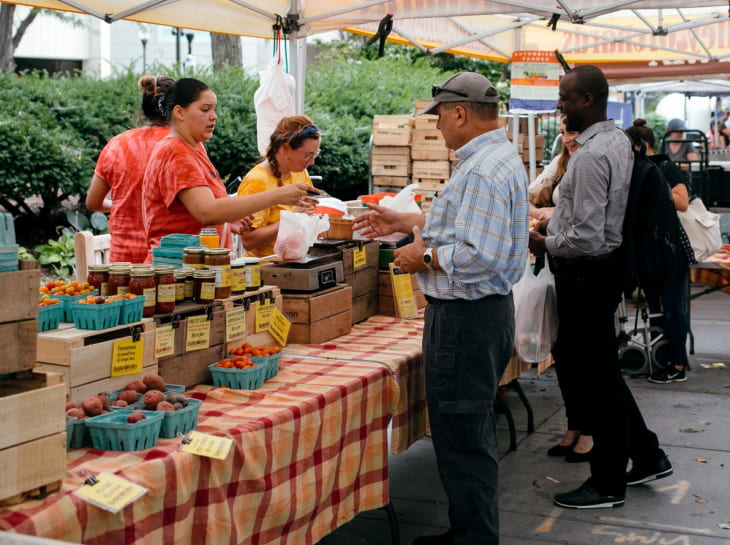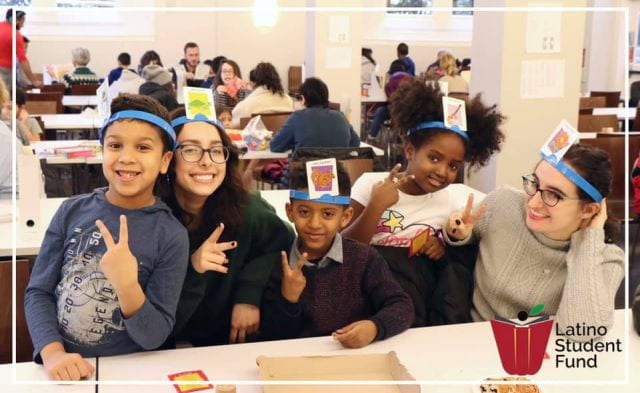Professor: Meghan Hollibaugh Baker
Students Reporting: 22
Total Impacts: 574 hours
Course Description:
Students in Professor Baker’s GTCH 2003 Step 1 and 2 Hybrid course applied the core concepts of their class to hands-on teaching experiences.
GTCH 2003 is a combination of GTCH 1001’s Inquiry Approaches to Teaching and GTCH 1002’s Inquiry-based Lesson Design. As future educators, students directly learned from their peers and mentors through in-person teaching experiences and lessons at local middle schools in the District.
While COVID-19 continues to affect educators at schools across the country, having a direct in-service component to education courses is especially imperative to preparing our teachers of tomorrow. Professor Baker’s course emphasized inquiry lesson design, teaching with technology, classroom management, and analyzing student performance, all of which are important to keep students on track and interested in learning.
Students in this course had only positive things to say about their experiences teaching in their classrooms and getting to engage with younger children. In reflections, students acknowledged the experience as “extremely rewarding” and educational, teaching them how to adapt to new situations and grow as teachers.
For information about Community Engaged Scholarship at GW: https://go.gwu.edu/cesc
Student Involvement:
| Students in Professor Baker’s course observed classrooms and created, then taught, STEM-focused and general education lessons for eighth-graders at the following elementary schools: |
- McKinley Middle School in Northeast, D.C.
|
- Stuart Hobson Ms. Capitol Hill Cluster in Capitol Hill, D.C.
|
- Jefferson Middle School Academy in Southwest D.C.
|
- School Without Walls at Francis-Stevens in West End, D.C.
|
Quotes from students:
“As with the other teaching experiences, I had a great time getting to work with the students. I feel like I've grown a lot both as a teacher and as a person throughout these experiences, and I've really appreciated it!” - A student who observed and taught an engineering lesson to eighth-graders at McKinley Middle School.
“This was extremely rewarding socially to be able to go out and give back to the community through teaching.” - A student who observed, prepared, and taught an eighth-grade class in geometry at Stuart Hobson.
“Going into D.C. public schools gives me a better idea of what the community that we live in here as students is like. At this school we got the opportunity to help and impact kids in middle school with their education.” - A student who observed a classroom at School Without Walls at Francis Stevens.
“Learning how to build a lesson plan and apply that lesson plan in a classroom setting has allowed me to give back to the eighth graders doing geometry at Stuart Hobson Middle School.” - A student who observed, prepared, and taught an eighth grade class in geometry at Stuart Hobson.
“Through the different aspects of student teaching, I felt like I was able to grow personally as well as in community with my teaching group, mentor teachers, and the students... It was a great opportunity to apply course concepts in a tangible, service-oriented way. I really appreciated getting to know the students as well.” - A student who observed, prepared a lesson for, and taught an eighth grade engineering class at McKinley Middle School.
